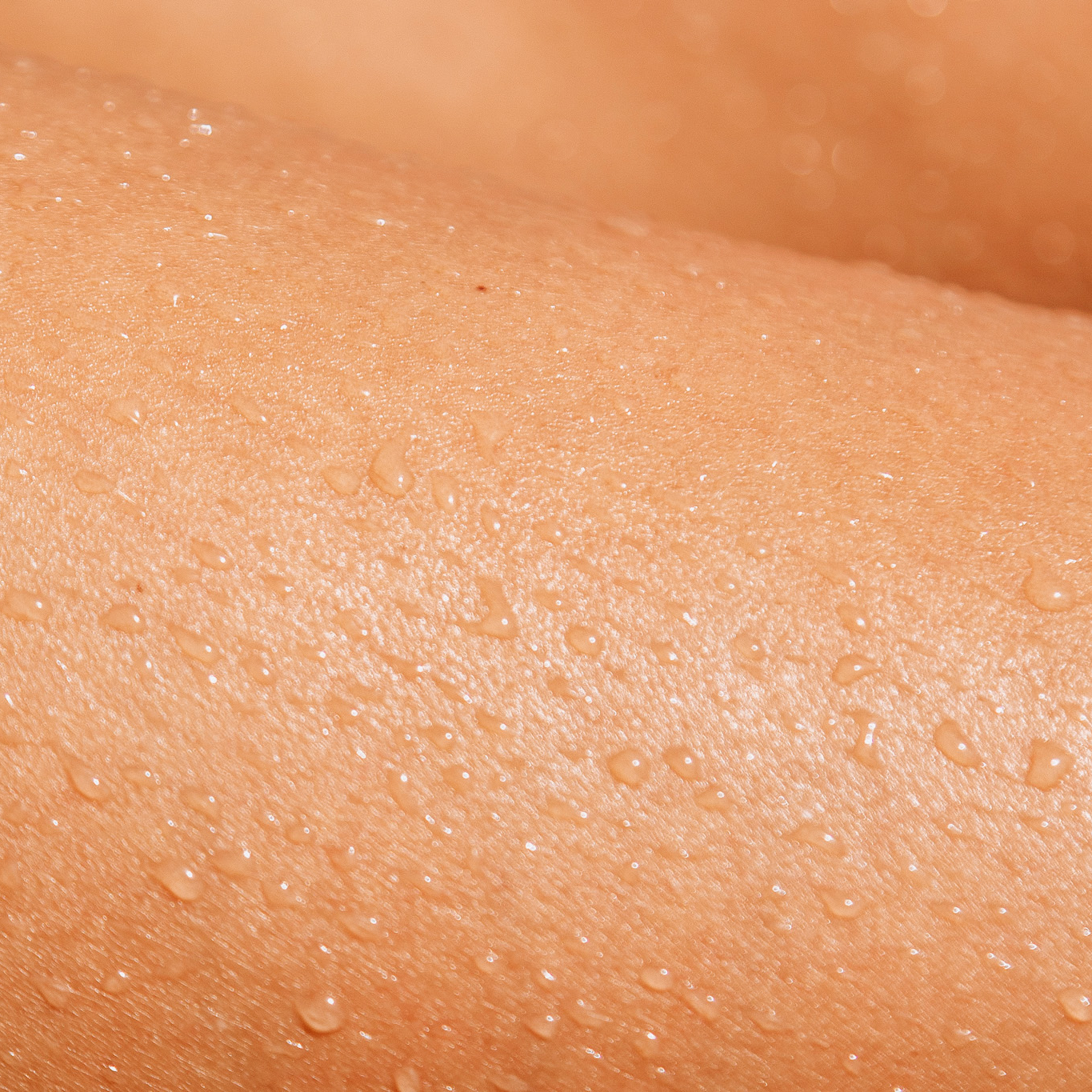Our sweat - An important biological function

Sweat is a natural and necessary biological process that is important for human survival and regulation of body temperature. It is a physiological reaction regulated by the autonomic nervous system and carried out by specific glands in the skin, called sweat glands. Sweating is not only a mechanism for cooling the body, but it also has other health and functional benefits.
Sweating has several important functions for the body:
Body Temperature Regulation: One of the best known functions of sweating is to regulate body temperature. When the body gets hot, either due to ambient temperature or physical activity, the sweat glands begin to produce sweat. As sweat evaporates from the skin, heat energy is absorbed from the body, lowering body temperature and preventing overheating.
Detoxification: Sweating is a mechanism that helps eliminate toxins and waste products from the body. By excreting substances such as urea, ammonia and lactate, sweating helps to cleanse the body and maintain a balanced internal environment.
Moisture balance: Sweating is an important factor in maintaining the skin's moisture balance. It helps prevent the skin from drying out and preserves the skin's natural suppleness and elasticity.
Immune Defense: Research has shown that sweat contains substances that may have antimicrobial properties and help fight harmful microbes on the skin's surface, strengthening the immune system.
Sweat is not just a simple salt solution; it consists of a complex mixture of various chemical compounds, including water, electrolytes and other substances. Here are some of the main components of sweat:
- Water: Sweat consists largely of water, which allows the body to release heat as it evaporates from the surface of the skin.
- Sodium and Potassium These electrolytes are important for maintaining fluid balance and normal nerve and muscle function. Sweat contains varying amounts of sodium and potassium.
- Urea and Ammonia: These substances are by-products of protein metabolism and are excreted through sweat. They help eliminate nitrogenous waste from the body.
- Lactate: Lactate is an organic acid formed as a result of anaerobic metabolism during physical activity. Its excretion through sweat helps reduce acidity in the body.
- Amino acids: Some amino acids can also be excreted through sweat. These play a role in protein synthesis and the body's metabolism.
- Glucose: Sweat can also contain small amounts of glucose, which is the body's primary source of energy.
- Lip-soluble substances: Some fat-soluble substances, such as certain drugs or chemicals, can also be excreted through sweating.
Sweating is an inevitable and natural process that plays a crucial role in maintaining the body's homeostasis and function. Its main functions include body temperature regulation, detoxification, moisture balance and immune defense. The composition of sweat is complex and includes water, electrolytes and other substances.
By understanding the meaning and composition of sweat, we can better appreciate its role in the human body and how it affects our overall health and well-being.




Comments